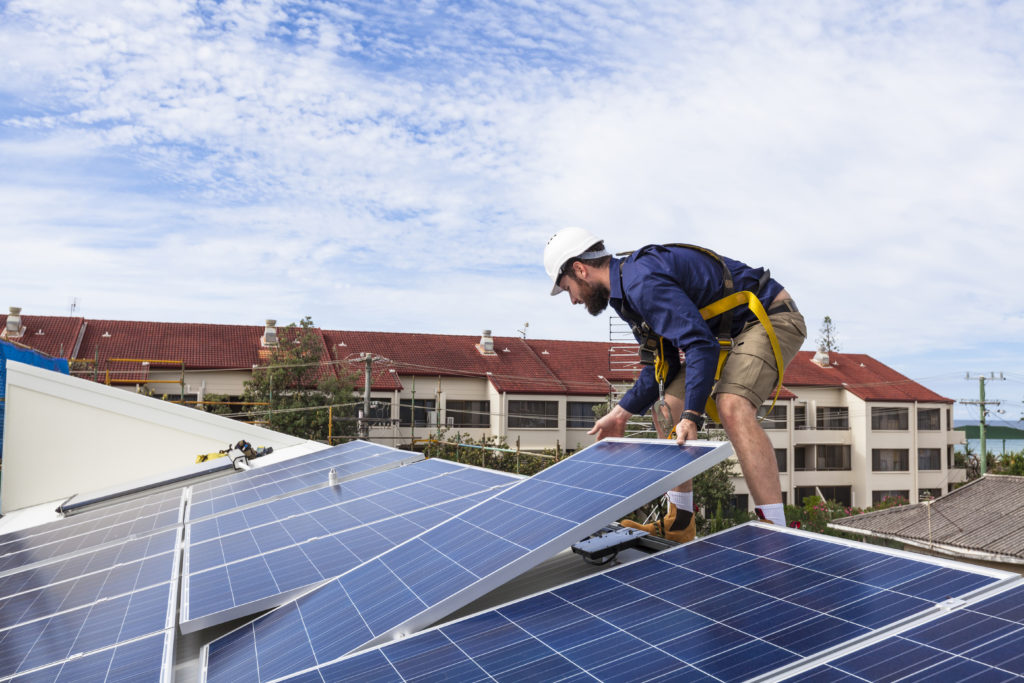There are many things to consider when choosing a solar energy company. You need to make sure you are dealing with a legitimate company, and you should ask the right questions to ensure that the company you hire is reputable. Here are some important things to look for in a solar company: Which is the best solar energy system? Which are the best solar companies for solar panels?
It is crucial to choose a company that is experienced and reputable. Not only can a solar installer offer advice and guidance, but they can also help you with the entire installation process. You may want to ask for referrals from friends or neighbors and read review websites to find the best companies for your needs.
It is also important to consider the type of solar product that a company offers. Some solar panel installers offer all types of solar products, but others focus on just a few. Some companies offer only a single brand, while others have a range of in-house products. In addition, you should find out whether the solar company you are considering offers warranties for their products.
High-quality and efficient solar panels will produce optimal output, especially in hotter climates. They will also save you money in the long run. Installed solar panels have a lifespan of 25 years, but a high-quality one can last much longer. They should offer a maintenance plan to keep it in good shape. They should also offer repair services if something goes wrong with your solar system.
How To Choose from the Best Solar Panel Companies?
Before purchasing solar panels, make sure to consider the warranty and component quality. These two factors are very important because your solar system will be exposed to weather and other elements. You don’t want to buy a panel that will break down easily because this will cost you money in the long run. Check if the manufacturer has tested the panel and published the results. Also, make sure to look for a warranty from the solar energy company that sells you the panel. A warranty from a reputable solar company will protect your investment and prevent any unexpected costs.
The next step in establishing a solar installation is to select the right mounting system. Solar panels should be mounted in a place that receives the most sunlight. It should also be placed in an area that is not blocked by any buildings or trees. The mounting system should be secure and strong. Otherwise, your solar panels may fall off during a typhoon.
Solar panels are energy-generating devices made from silicon sheets. Unlike conventional energy sources, they don’t emit any fumes or toxins. They work by reacting to sunlight or solar energy, which means they start generating electricity the moment it hits them. The stronger the light, the more power the panels will generate.
Which Are The Advanced Type Of Solar Panels?
There are several types of solar panels. One of the most advanced is monocrystalline solar panels. It also has a much longer lifespan than other types. Monocrystalline solar cells are made by slicing a silicon ingot into thin strips.
Typically, you should choose one of these types, depending on the size and shape of your roof. Solar panels vary in efficiency based on their type of silicon and the technology of their silicon cells. High-efficiency panels usually use higher-grade N-type cells and have improved temperature coefficients. High-efficiency panels will also last for a long, as their cells have lower levels of light-induced degradation.

Do You Still Pay Bills If You Have Solar Panels?
Although solar panels produce clean, renewable energy, you still have to pay your electric company. You will still receive a monthly electric bill, but it will have a reduced amount of charges than before. In some cases, you may even have a credit on your bill for the excess electricity you sent to the grid. It is important to know the details of your bill before you decide to purchase solar panels.
Installing solar panels can reduce your monthly electricity bill significantly. In some cases, it can eliminate your bill completely. But this depends on your home’s energy consumption and the size of the solar energy system you purchase. You should also consider the costs of the upfront installation of solar panels. If you have a relatively small solar system, you may not be able to save enough money to pay off your monthly bill. Another thing to consider is your meter’s accuracy. Sometimes, the meter doesn’t tell the truth, and you may find that your bill is higher than you thought. Be sure to check your meter’s accuracy monthly. Also, remember to conserve energy to save money on your electric bills.
What Is A Solar Tax Credit?
Solar tax credits can be claimed by homeowners in the Pennsylvania United States for solar panels purchased for residential use. In order to claim the credit, the solar energy system must be a new installation. The electricity produced by the solar system must not exceed your home’s total electricity consumption. The credit does not apply to leased solar equipment or solar energy purchase agreements. This credit covers the cost of solar PV panels installation, including labor, permitting fees, and sales taxes. The credit also covers the costs of wiring, mounting equipment, and energy storage devices.
The credit is available for commercial and residential solar installations. It is applicable to new installations that start using solar energy for the first time between January 1, 2006, and December 31, 2023. This credit is meant to boost the solar industry by doubling its size in a few short years.
How Long Do Solar Panels Last?
The lifespan of solar panels is typically around 25 to 30 years, but they can last much longer. If they’re in good condition, solar panels can still produce electricity well into the next century. However, as solar panels age, their efficiency will decrease. That decline in efficiency will affect how long your solar panels will continue to produce electricity.
The life span of solar panels can be extended with some simple maintenance. It’s best to keep the panel clean and free from obstructions like overhanging trees. A good solar panel supplier should also be able to offer advice on where to place your panels. Seeking the advice of a professional is always a good idea.
Solar panels naturally wear down and may need replacement, but not because they are defective. In fact, some manufacturers offer a 30-year warranty on their products. This is a great deal, considering how long they last and how much solar energy they generate. Solar panels also gradually lose energy over time, due to thermal cycling and UV damage. Poor manufacturers may not use UV blockers in their epoxy glue, which could lead to the deterioration of the panels over time.
What Should I Do Before I Hire A Solar Company?
Before you hire a solar installer, you should do your research. Not all solar installers are the same, so you need to choose a company that works closely with you. Ask for references and check BBB ratings and review sites. Make sure to hire the best solar installers in your area.
To save as much money as possible, you can shop around for a solar installer. If possible, choose a solar installation company that will provide an on-site evaluation and a written price quote. Make sure to read customer reviews and compare price quotes from national brands with local installers. These smaller companies can offer excellent deals, allowing you to save thousands of dollars.
Once you have determined the type of solar installation company you want, you should choose a company that can service your area. Local solar installers know the incentives and permits available in your area. Local solar companies can also be easier to work with because they are familiar with local regulations. They can also help you save money by designing a customized plan and staying within your budget.
Choose a company that meets the minimum requirements set by the State Licensing Board. The company should be licensed, insured, and bonded. Moreover, it should not have any negative marks on its record. It is wise to opt for a company with years of experience in your local area. Larger solar companies can also offer you more options when it comes to payment options and warranties.
Other FAQs About Solar Panels
What Is The Importance of Net Metering?
Net metering, also known as net solar energy metering, is a billing system that differentiates between the value of solar electricity a customer draws from the grid, and the value of solar electricity they sell to the grid. The benefits from net metering are two-fold, including reduced energy costs and reduced carbon emissions. However, some utilities have reduced the value of solar electricity by devaluing it on a percentage basis. The result is that a typical solar PV system owner only gets about 85% of the value of the grid electricity that they generate.
Net metering makes it more affordable to buy a solar energy system. It also allows solar owners to sell surplus electricity to the grid, which creates a revenue stream. The added benefit of net metering is that it shortens the time it takes a solar energy system to pay for itself.
What Is The Importance Of Battery Backup?
It is important to understand the importance of battery backup when choosing a solar energy system. In the event of a power interruption, a battery backup can keep your home comfortable and safe. Power outages can occur due to several factors, including storms, car accidents, and power cuts.
Normally, a battery backup provides backup power for only a part of a home, so it’s important to choose the right battery system to meet your specific needs. This is because most battery installations require you to select which parts of your house you’d like to back up, and then pull those loads onto the critical load panel. However, smart electrical panels can help you get the most out of your battery backup system by maximizing your battery storage capacity. You may be able to add more batteries to meet your needs, or even stack them together.
There are different types of batteries available for use with solar panels. Some are deep-cycle lead-acid batteries, which require frequent topping up with distilled water. This is not ideal if you want to set and forget a system.
What Are Solar Incentives?
Incentives for solar installations can vary from state to state, but many states offer some type of solar tax credit. The incentives are based on the size of the solar system, the Megawatt block, and the region in which the system is being installed. These programs can reduce the tax burden incurred after installation and greatly reduce the time to recover a solar investment.
States also offer additional solar incentives. Many offer a second tax credit similar to the ITC. These credits can help you offset a portion of the cost of a solar panel installation. The credits can be worth hundreds or thousands of dollars per year, depending on the state and city. Another type of solar incentive is performance-based credit. In this program, the owner receives a fixed credit for each kilowatt-hour of electricity produced by a solar energy system. These credits can also be used as a tax credits to offset the tax liability of the owner of the system.
